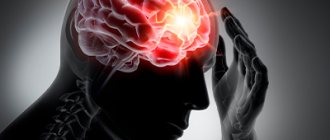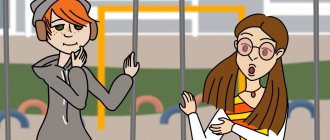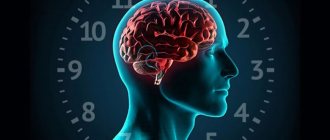Personality disorder is a fairly large spectrum of mental disorders, which is defined in the ICD-10 codes F60-F69 under the heading of personality and behavior disorders in adulthood.
Currently, psychiatrists use a diagnostic system that distinguishes 9 main categories and 42 subcategories of types of disorders. Some of them can be considered as independent, others, as a rule, are included in the context of endogenous or organic brain disorders.
Despite the fact that this category of diseases of higher nervous activity has a persistent chronic nature, the Preobrazhenie Clinic has learned to effectively cope with many of them.
In most cases, we achieve very good results and can get rid of the personality disorder completely. In other cases, we achieve an effect by reducing the intensity of symptoms to a level that does not reduce the patient’s quality of life.
What are the types of personality disorder?
- F60. Specific personality disorders. These are severe personality disorders and pronounced deviations in human behavior that are not the result of organic brain damage. Cover several areas of human life. Associated with human suffering and personality disintegration.
- F61. Mixed and other personality disorders. These personality disorders cause social difficulties in communication. Diagnosis of this category is very difficult. They are considered secondary to the main diagnosis. Commonly included in depressive and anxiety disorders.
- F62. Persistent personality changes. They are not associated with organic brain disease. They usually occur in adulthood in a person who has experienced a disaster or excessively prolonged stress, or a serious illness.
- F63. Disorders of habits and desires. This category includes disorders that do not have a clearly expressed rational motivation, cannot be controlled, and usually cause harm to the patient himself and others.
- F64. Gender identity disorders.
- F65. Disorders of sexual preference.
- F66. Psychological and behavioral disorders associated with sexual development and orientation.
- F68. Other personality and behavior disorders in adulthood.
- F69. Personality and behavior disorder in adulthood, unspecified.
These headings include 42 subheadings, which have their own characteristics. However, their diagnosis is due to various reasons, for example, secrecy or lack of understanding of the patient as a result of the existing disease. An accurate diagnosis usually requires an examination in a hospital setting.
Non-existent personality disorders
- Schizotypal personality disorder;
- Emotional-impulsive;
- Borderline;
- Narcissistic;
- Antisocial;
- Avoidant personality disorder;
- Obsessive-compulsive.
This is not the entire list of diagnoses invented by medically illiterate and greedy people. Their goal is not to help people, but to enrich themselves at the expense of those suffering.
That is why, for a quality diagnosis, you should consult a good psychiatrist in person. Only a psychiatrist with a higher medical education and specialization in psychiatry is able to not only correctly diagnose, but also prescribe adequate therapy for a personality disorder.
The use of loose terms in defining a diagnosis only indicates illiteracy.
UNSOCIALIZED/SOCIALIZED CONDUCT DISORDER
Unsocialized behavior disorder is accompanied by aggression and antisocial acts directed at other children. This is the main distinguishing feature of the defect.
It is expressed by the inability to establish relationships with peers, rejection by children, and lack of close friends.
Relationships with adults are maintained or also disrupted. The child is rude and angry. He is an individualist who opposes authority. Typically:
- hooliganism;
- physical, mental violence, pugnacity;
- cruelty towards children and animals;
- damage to property.
Petya, 7 years old. Having entered the 1st grade, problems emerged in interacting with classmates. He was rude and confrontational. He did not establish friendly relations with anyone. I started about 15 quarrels a day. Overly cruel. During fights he inflicted serious injuries. Indifferent to other people's pain.
Violated discipline. He reacted to comments with verbal aggression. He was restless and talked in class. Uncontrollable, opposed to the regime. He called teachers villains. However, he showed high intellectual abilities and curiosity.
He was expelled from school for bad behavior. Refuses to study at home. He is interested in computer games and plays with a toy telephone. Fussy, hyperactive. Calms down when he finds something exciting to do. He loves to listen when his mother reads a book to him. He categorically does not want to return to school.
Socialized behavior disorder: characterized by aggressive, antisocial behavior of sociable adolescents who have long-term, established relationships with peers. They often become members of antisocial groups.
Illegal acts are typical: robbery, theft, assault.
Relationships with adults in power (teachers, parents) are disrupted, but with others they are able to maintain normal relationships.
Veronica, 13 years old, 7th grade student. Doesn't attend school. Absent from home for weeks. She is rude, aggressive, and confrontational with relatives.
Sloppy. He smokes, drinks, wears bright makeup. Takes up to 10 tablets of diphenhydramine to “catch glitches.” One day, my friend and I took pills, trying to commit suicide. Having experienced painful consequences, they did not repeat the attempt. They offered to try heroin, but she refused, fearing the outcome.
Takes money out of the house. One day I stole money from my mother at work. He is friends with older guys. Together they robbed my sister’s room, taking out money and jewelry, after a conflict with my sister’s husband.
The girl stopped attending the school her parents had recently transferred to when her classmates started calling her names. Then she set her older comrades against the offenders to intimidate them. Afterwards, Veronica visited the school to see if she would be teased further. Satisfied that there was no bullying, she never returned to school.
He mocks his younger brother and offends him. The girl's behavior changed after the death of her father and the birth of a brother from her mother's second marriage.
Personality disorder
In some cases, you may not realize that you have a personality disorder because the way you think and behave seems natural to you. And you may blame others for the problems you face.
It is important to remember that such feelings and behavior are very difficult to live with. Such a person should receive qualified medical care and support.
Personality is a way of thinking, feeling and behavior. This is what distinguishes a person from other people. The formation of personality is influenced by upbringing, personal experience, environment, life situations and hereditary characteristics. Personality formation occurs in the first year of life. By the age of 3, the personality is practically formed. Then you can only carry out personality correction. Typically, a person's personality remains unchanged.
A personality disorder is a way of thinking, feeling and behaving that deviates from cultural expectations, causing imbalance and problems functioning in society.
Description of some disorders
We cannot describe all manifestations of a personality disorder. However, we will try to talk about the most common ones that people contact us with most often.
Family members can play an important role in changing the situation and correcting it. Together with your doctor, you need to find the most effective ways to help and support. Treatment for a personality disorder should always involve the family. Often during therapy, this can cause anxiety among family members. Family members may find it helpful to talk with their healthcare provider to help them cope with any difficulties they may have.
It is a type of mental disorder in which there is an unhealthy way of thinking, functioning and behaving. It is difficult for a person with a change in perception to adequately perceive situations and people. Accordingly, they have their own opinion about people and attitude towards them. This perception causes serious problems and limitations in relationships, work and school.
Paranoid personality disorder
Thoughts, sensations and experiences associated with this mental state may manifest themselves in the following ways.
Manifestations of paranoid disorder
- It's hard to trust people, even your friends and family;
- Difficulty trusting other people, believing that they will take advantage of you or take advantage of you;
- Problems with relaxation, constant tension;
- Feeling threatened or in danger in everyday situations when others do not see it;
- The feeling of hidden subtext in innocent remarks or casual glances.
This can become a significant problem in interpersonal relationships and create difficulties in communication. This usually provokes a decrease in the quality of family and work relationships.
Schizoid personality disorder
Many people with schizoid personality disorder can function normally. They lack a psychotic component. However, as a result of this condition, a person often experiences specific feelings that affect the quality of his life. In some cases, such symptoms may indicate the initial phase of the formation of schizophrenia or schizotypal disorder.
Manifestations of schizoid disorder
- Lack of close, trusting relationships with others;
- Difficulty making decisions without outside help;
- The desire to be alone with your thoughts;
- Lack of enjoyment from most activities;
- Problems with choosing a profession;
- Lack of interest in sex and intimacy;
- Having emotional coldness towards others.
Histrionic personality disorder
Most people like to receive compliments or positive feedback about their actions. But if you are so dependent on being noticed or seek approval so much that it affects your daily life. In such cases, a diagnosis of histrionic personality disorder may be made.
Manifestations of hysterical disorder
- an uncomfortable feeling in the company; you are not the center of attention;
- feeling the need to entertain others;
- the need for constant approval of others, a feeling of dependence on this;
- making hasty decisions;
- need for flirting;
- desire to dress extravagantly to be the center of attention;
- have a reputation for being dramatic, emotional;
- are easily influenced by others.
There are quite a lot of variants of such disorders, especially those invented by psychologists. We cannot describe them all within the scope of this site. If you suspect there is a problem, don't worry about it. Go to a good psychiatrist for a consultation, get examined, and you will know everything about your personality type. And if correction is needed, the doctor will help you choose the right path to this.
CAUSES
There are a sufficient number of factors that provoke the development of the defect. It is impossible to talk about their determining effect, but these provocateurs are capable of preparing favorable soil.
A special role belongs to the family atmosphere in which a small family member is raised. For example, a relationship has been established between conduct disorder and parental divorce, the appearance of a stepparent, a large family, and poverty. Sometimes the mother's age is too young.
A destructive parenting style is considered to be a low level of control and insufficient participation in the life of a child, especially a teenager, as well as the unpredictability of parents’ reactions to their children’s actions.
There is a relationship between a defective way of acting and a low level of intelligence in children, the ability to organize and plan their own activities, and switch attention between goals.
Hereditary factors cannot be ignored. When one family member - parent, brother, sister - suffers from behavioral disorganization, there is a risk that the younger member of the family will adopt similar manners.
Treatment of personality disorders
There are no medications specifically designed to treat personality disorders. However, medications such as mood stabilizers, sedatives, behavior correctors, amino acids, vitamins, etc. often help get rid of the manifestations of a personality disorder.
The main method of therapy is a combination of several psychotherapy techniques. Drug therapy can be used as an aid. In addition to active therapy, those who want to get rid of a personality disorder need their own self-help and coping strategies. Such strategies are developed by the patient together with a psychotherapist or psychiatrist.
Self-help tips
- Be active. Physical activity and exercise can help manage many symptoms such as depression, stress and anxiety.
- Avoid drugs and alcohol. Alcohol and illicit drugs may worsen symptoms or interact with medications.
- Get routine medical care. Do not neglect examinations or regular care with your family doctor.
- Join a support group for other people with personality disorders.
- Write in a journal to express your emotions.
- Try relaxation and stress management techniques such as yoga and meditation.
- Stay connected with family and friends; avoid isolation.
When to see a doctor
Personality disorders usually begin in adolescence or early adulthood. There are many types of the disease. Some types of disorder may become less relevant as you age.
If you have any signs or symptoms of a personality disorder, consult a mental health professional. Without treatment, serious problems may arise in your life. Symptoms often worsen and without medical help a person’s quality of life drops significantly.
Personality disorders can significantly disrupt the lives of both the affected person and those who care for them. They often cause problems in relationships at work or school. Symptoms that occur often lead to social isolation and alcohol or drug abuse.
REACTIONAL FOUNDATIONS OF DISORGANIZATION OF ACTIONS
There are certain types of reactions characteristic of children with a disorganized manner of action.
For younger children these are:
- protest. Occurs when there is increased imposition of something, or restriction of activity. Active protest is manifested by aggression, rudeness, and damage to property. Passive - hostility, deliberate silence, suicide attempts, starvation, running away from home. Physiological signs – enuresis, digestive disorders, hacking cough;
- refusal is a reaction to dissatisfaction with the sense of security and communication in very young children. Manifestations: lack of activity, desire to communicate, lack of emotion. No response. There is no desire for gaming activities. Everything is not interesting, they are not able to enjoy sweets or favorite toys;
- imitation - imitating the negative traits of authority figures. Children adopt bad habits and antisocial activities;
- compensation - the child compensates for the failures of one activity with the achievements of another. Failures in educational activities are compensated by hooliganism and theft. Fears and timidity are replaced by bullying other children, extreme car and motorcycle riding.
Reactions in teenagers:
- emancipation - resistance to the rules established by adults, rejection of help, disregard for advice and tips;
- grouping - the creation of antisocial groups;
- hobbies - aimed at satisfying interest in a specific activity. Excitement is satisfied by card or other games for money, leadership - by situations of leadership (gangster group). But even if hobbies are positive (sports, art, beauty), they can also destroy acceptable rules of action. They are provoked by refusal to attend school, carrying out illegal acts, making inappropriate acquaintances, ignoring relatives, and committing life-threatening acts.
F66 Psychological and behavioral disorders associated with sexual development and orientation.
This section is intended for those problems that arise from characteristics of sexual development or orientation, where sexual preference in itself is not necessarily abnormal or causing the problem.
F66.0 Puberty disorder.
The patient suffers from uncertainty about his gender or sexual orientation, which leads to anxiety or depression.
F66.1 Egodystonic sexual orientation.
Gender identification or sexual preference is not in doubt, but the individual wishes it to be different.
F66.2 Sexual communication disorder.
Anomaly in gender identity or sexual preference leads to difficulty forming or maintaining a connection with a sexual partner.







